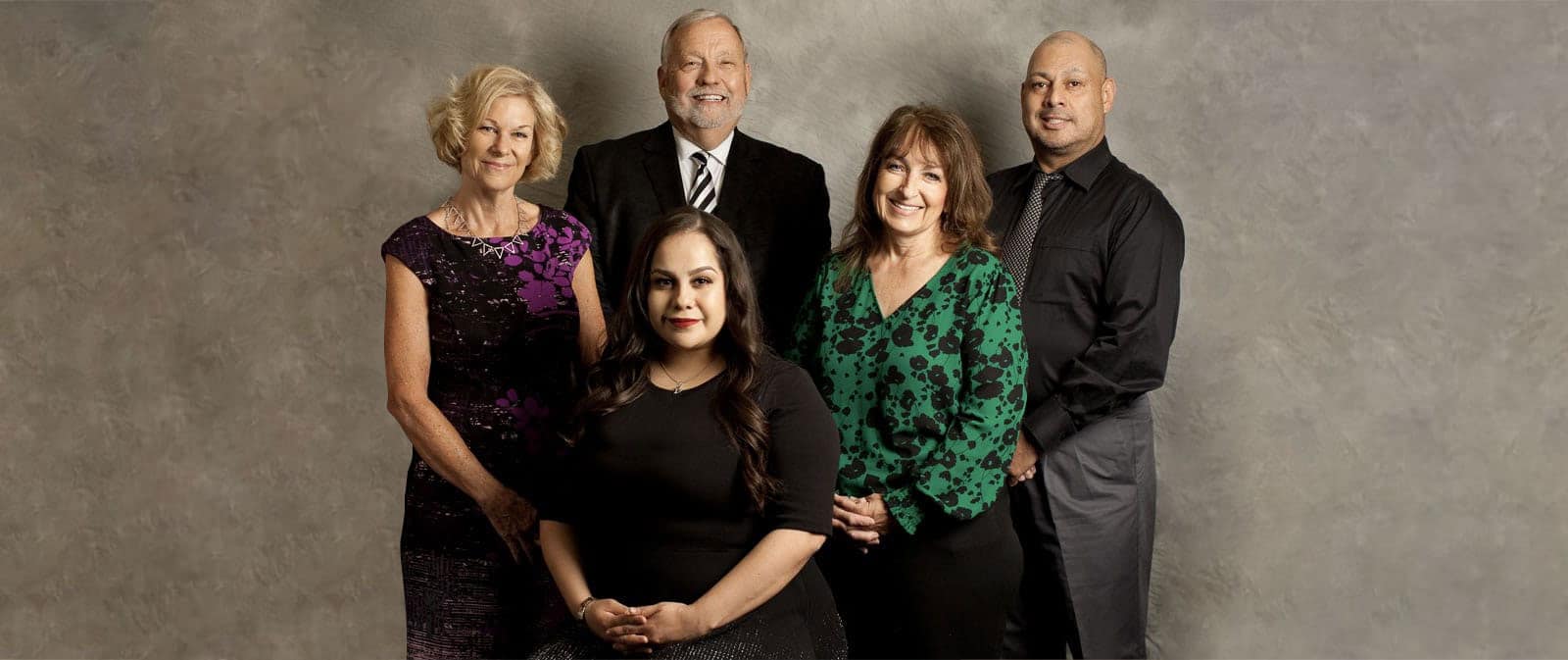How Arizona workers’ compensation law applies to firefighters injured or killed in the line of duty
Anyone can be hurt at work, and every profession has its inherent dangers. But few jobs are more dangerous than the noble profession of firefighting. Although the overall number of firefighter injuries and fatalities has trended down in recent years thanks to improved risk management systems, injury prevention training and safety technology, the reality is that firefighting is still an inherently dangerous profession that presents great risk of personal injury to firefighters.
In the United States, an estimated 58,835 firefighter injuries occurred in the line of duty in 2017 alone. One out of every 3 incidents caused the firefighter to miss time at work. There were 60 on-duty firefighter fatalities in that same year. Also, firefighters in 2017 experienced 7,345 exposures to infectious diseases (such as hepatitis, meningitis, and HIV) and 44,530 exposures to hazardous conditions (such as asbestos, radioactive materials, chemicals, and fumes).
While it’s true that firefighters are highly likely to be injured at fireground operations, many firefighters are injured while performing other types of duties. In fact, injuries most commonly occur during non-fire related emergencies.
If you were injured as a firefighter in Arizona and want to ensure that you receive the maximum possible workers’ compensation benefits, we invite you to contact the Law Offices of Robert E. Wisniewski.
For 45 years, we have provided timely, dedicated representation to thousands of severely injured workers across Arizona—including fire fighters, fire engineers, fire captains and other fire workers.
Workers’ compensation is all we do, and we do it well.
Without professional representation, many injured workers fail to receive the justice and compensation they deserve.
For 45 years, we’ve represented injured firefighters —including the family of a Granite Mountain Hotshot.
If you were injured as a firefighter, or lost a loved one in a firefighting tragedy, talk to us about your workers’ compensation rights. There’s no initial consultation fee to discuss your case with our experienced work injury attorneys and no upfront fees if you hire us to represent you. You only pay if we are successful in obtaining benefits for you.
It costs no more to have the best!
Integrity, Care and Compassion
“You have shown integrity, care and compassion concerning my case – as well as my self – personally, which most would not have bothered themselves with. This personal touch counts and I will definitely toot your horn for you whenever there is a need or opportunity to do so. Again, I thank you and I greatly appreciate what you have all done for me. You will all be in my heart and mind. Sincerely and with great appreciation.” – K.S.
Common firefighter work injuries
It may surprise some to learn that severe burn injuries are actually quite rare in the firefighting profession, perhaps because of all the protective gear worn to shield firefighters from this danger. Firefighters are more likely to be injured at fireground operations and non-fire related emergencies than at other types of duties.
The injuries firefighters most commonly experience in the line of duty include:
- Overexertion, muscle strains and sprains
- Wounds, cuts, bleeding, and bruises
- Asphyxiation and respiratory damage
- Thermal stress (frostbite or heat exhaustion)
- Exhaustion and dehydration
- Bone fractures and dislocations
- Spinal cord injuries
- Occupational illnesses (cancer, cardiovascular disease, etc.)
- Post Traumatic Stress Disorder (PTSD)
While the causes of work-related injuries among firefighters vary greatly, statistics show that some of the most common reasons include slips, trips and falls, as well as vehicle collisions while driving to or from a fireground or accident site. Other common causes of injury include exposure to fire and hazardous chemicals, smoke or gas inhalation, and being struck by an object.
Case Results
Bob Wisniewski gets the Arizona Court of Appeals to reverse the trial court’s decision. The trial court at the Industrial Commission of Arizona originally denied benefits to a police officer for post-traumatic stress disorder (PTSD). They held that the officer failed to file his claim within 1 year on the basis he “knew or should have known” he had PTSD. Wisniewski argued on appeal that the standard requires a medical diagnosis of a condition, not a layman’s perception. The court agreed and reversed the decision of the Industrial Commission of Arizona.
This court decision is significant, not only for this officer but for all first responders. Post-traumatic stress disorder often takes a long time to manifest its symptoms, and this now helps first responders who timely file after a medical diagnosis.
Compensation for firefighters injured in the line of duty
Regardless of the cause, any type of injury can have life-altering consequences for a firefighter that causes tremendous personal and financial stress on the individual and their family as medical bills pile up. Having to take off work for an extended period of time (or perhaps permanently) adds further concern in how you will make ends meet and provide for your family.
In such difficult situations, it’s possible for the injured firefighter to seek compensation from their department to help cover the costs of a work-related injury or illness. You may be eligible for workers’ compensation benefits such as:
- Medical expenses
- Lost wages and disability
- Death benefits (in the event of a work-related fatality)
What about occupational illnesses and diseases?
On top of the wide range of injuries an Arizona firefighter may suffer while in the line of duty, data shows that firefighters are diagnosed with and die from cancer and cardiovascular disease at higher rates than the general population. Fortunately, workers’ compensation also covers benefits for work-related illnesses and diseases such as cancer and cardiovascular (heart) conditions, but these claims are often more complicated.
Until recently, Arizona firefighters and other injured workers found it difficult to establish a “direct causal connection” in their occupational workers’ compensation claim. In other words, it was difficult for injured workers to prove that their illness or disease (such as cancer or heart disease) was indeed caused by their job and not from sources outside of the workplace. This loophole allowed insurance companies to deny many firefighters and first responders who filed occupational illness claims with the Industrial Commission of Arizona.
However, thanks to Arizona’s new “cancer presumption” law, the state has eliminated the need for a firefighter to provide a direct causal link between certain types of cancer and work-related exposure. This had made it easier for firefighters to obtain workers’ compensation benefits for specific types of cancers, including:
- Brain cancer
- Bladder cancer
- Colon/rectal cancer
- Esophageal cancer
- Kidney cancer
- Lung cancer
- Lymphatic cancer (lymphoma)
- Leukemia
- Mesothelioma (cancer caused by asbestos exposure)
- Multiple myeloma
- Skin cancer
- Testicular cancer
Until the rise of cancer-related health complications beginning in the mid-1990s, heart disease was the leading cause of firefighter fatalities. As with cancer, certain presumptions apply to firefighters who experience a heart-related, perivascular or pulmonary injury, illness or death.
A cardiovascular illness is automatically deemed to be work-related and the firefighter is eligible for workers’ compensation so long as the following three conditions are met:
The firefighter passed a physical examination before employment and the examination did not indicate evidence of heart-related, perivascular or pulmonary injury or illness.
The firefighter received a physical examination that is reasonably aligned with the national fire protection association standard on comprehensive occupational medical program for fire departments.
The firefighter was exposed to a known event and the heart-related, perivascular or pulmonary injury, illness or death occurred within 24 hours after the exposure and was reasonably related to the exposure.
If a firefighter develops any of these types of cardiovascular conditions or cancers (or others specified under state law), it is assumed that the disease was caused by their job and they are eligible for workers’ compensation.
But despite these laws, firefighters are often denied workers’ compensation claims after a cancer diagnosis or heart attack. This is where a workers’ compensation attorney may be necessary.
Can volunteer firefighters get workers’ compensation?
Most volunteers aren’t guaranteed workers’ compensation in Arizona, but there is an important exception that applies to volunteer firefighters.
Under Arizona workers’ compensation law (A.R.S. § 23-901), volunteer firefighters — as well as volunteer workers of a licensed health care institution and volunteers who participate in emergency management training — are covered by Arizona’s workers’ compensation insurance just like any other public employee.
What to do after being injured in the line of duty
Immediately following an injury or illness obtained while in the line of duty, you should report the incident to your supervisor. Also, seek medical attention and tell the health care provider that you were hurt in a work-related accident.
Next, contact a workers’ compensation attorney who is experienced in representing firefighters and who can help guide you through the process.
Like all workers’ compensation claims, firefighter injury claims must be filed with the Industrial Commission of Arizona within a certain time period. The commission then refers the claim to the city where the firefighter is employed, and the city typically hires a third-party administrator to investigate the claim. If the claim is denied, the firefighter can appeal to the Industrial Commission to have an administrative law judge review the case.
Read more: How to Apply for Workers’ Comp
Arizona Workers’ Compensation for Asbestosis
Understand your right to compensation if you or a loved one developed asbestosis after asbestos exposure at work.
Help for law enforcement officers & first responders injured on the job

Can you receive compensation for job-related mental stress?

Our experienced workers’ compensation lawyers stand up for police officers injured on duty.

How ambulance drivers, EMTs and paramedics in Arizona can obtain their workers’ compensation benefits

How Arizona workers’ compensation law applies to firefighters injured or killed in the line of duty

Working with PTSD may not be easy, but it can be manageable.

A critical appeals case was decided in favor of police, firefighters and first responders.

Workers’ compensation certified specialist. PTSD lawyer for first responders and police officers.
Questions and answers about compensation for a job-related accident, injury or illness in Arizona

Arizona Workers’ Compensation Guide
FREE E-BOOKWhat do you do if you’re injured on-the-job? Our free guide contains knowledge to help the injured worker understand the workers’ compensation application process.

Mr. Wisniewski has been recognized as the premier workers’ compensation lawyer in Arizona. He is the only claimants’ attorney recognized as a Fellow of The College of Workers’ Compensation.
"It costs no more to hire the best."
Our Arizona work injury lawyers can help you
When the bravest among us are hurt or killed in the line of duty, the Law Offices of Robert E. Wisniewski stand by injured firefighters and their families to help them secure the workers’ compensation they deserve.
One accident can put your entire career on hold. We can help you file an injury claim with the Industry Commission of Arizona and fight to appeal a denied claim if necessary.
We’re prepared to use our experience, expertise, resources and passion to make sure you get the compensation you’re owed.
Why hire our Arizona workers’ comp lawyers?
- We understand the special needs of an injured worker
- Trained and helpful staff
- Personal attention to clients
- Calls promptly returned
- Clients kept up-to-date on case
- State-wide service
- Aggressive & experienced representation
- Hablamos español
While our main law office is in downtown Phoenix, we handle workers’ compensation claims throughout Arizona – including Yuma, Kingman, Payson and Flagstaff.







